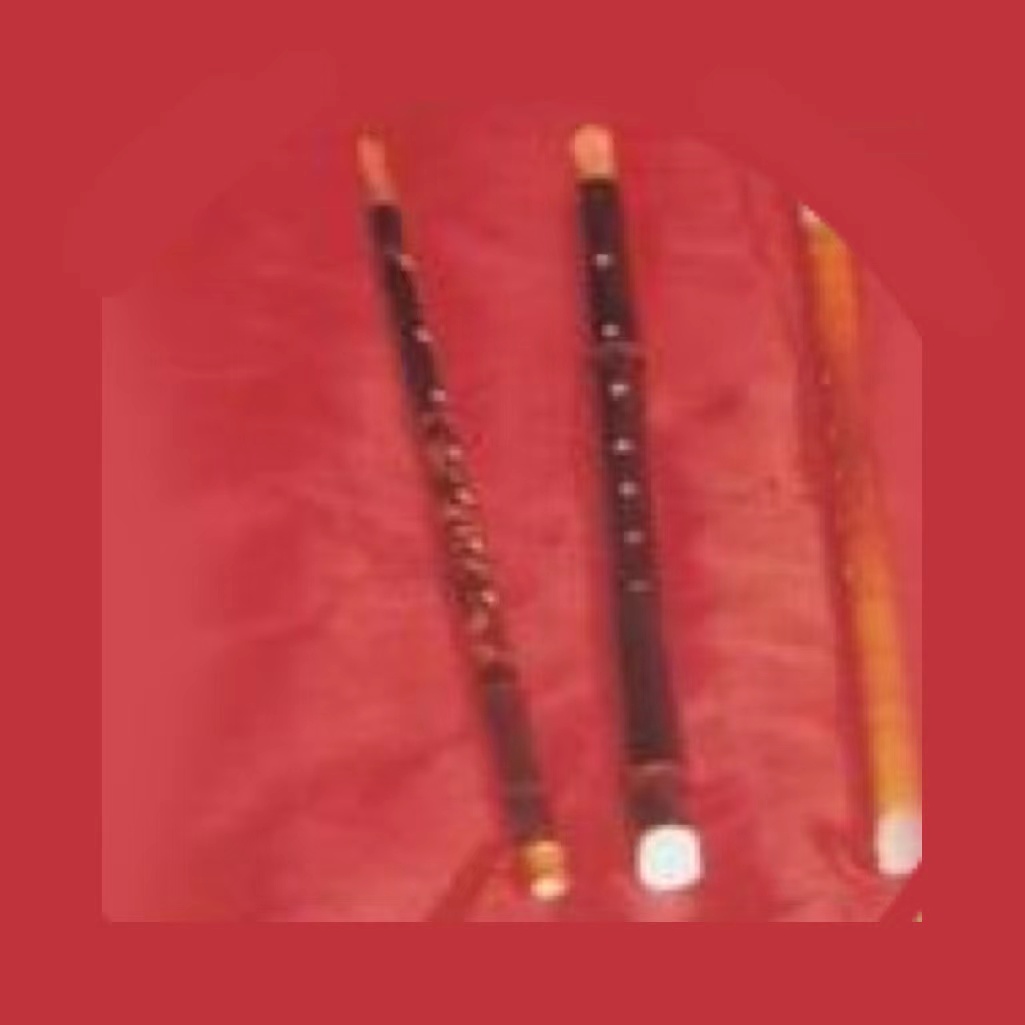Bob overview
 Bobo (pinyin: bō bó) is a Naxi double-reed air-sounding instrument. Naxi is also known as feeding cloth, also known as reed pipe and 筚篥. Popular in Lijiang Naxi Autonomous County, Yunnan Province and its adjacent areas.
Bobo (pinyin: bō bó) is a Naxi double-reed air-sounding instrument. Naxi is also known as feeding cloth, also known as reed pipe and 筚篥. Popular in Lijiang Naxi Autonomous County, Yunnan Province and its adjacent areas.Bober is composed of two parts: the pipe body and the reed whistle, with a total length of 20 cm to 24 cm. The tube body is made of bamboo, mostly made of locally grown green bamboo. The upper and lower sections of the tube body are hollow, the tube length is 15 cm to 19 cm, the outer diameter of the tube tail is 1.2 cm, and the inner diameter is 0.8 cm. The front of the tube body has six or seven rounds. According to the sound hole, the hole spacing is equal, there is no back hole, and a reed whistle is placed on the upper end of the bamboo tube. The reed whistle is a double-reed reed made of reeds that are thin and flattened. It is about 6 cm long, the upper end of the whistle is 0.9 cm wide, and the lower end is inserted into the tube body by 1 cm. In addition, there is also a bob with a copper body, with six holes on the top, but because it is difficult to make, there are fewer users.
Bob is the ancient 筚穥. According to legend, in 1253 AD, when Kublai Khan, the ancestor of the Yuan Dynasty, marched south to Dali, Yunnan, Bobo was brought to Lijiang by a Mongolian band accompanying the army, and it has been handed down to the people till now. This instrument was called the head pipe in the Song Dynasty, and it was the main wind instrument in Jiaofang Dale and drum music. "The History of the Yuan Dynasty, Records of Rites and Music" states: "The instrument of Yan music has a head tube, with bamboo as the tube, rolled reed leaves as the head, and seven orifices." The shape of the Naxi Bobo today is roughly consistent with the head tube recorded in the Yuan history.
Traditional music includes "Bronze Pot Dripping Water", "Beautiful White Clouds", "Wan Nian Huan", "Dai Wu" and "Lang Tao Sand".
- Chinese name:Bob
- alias:reed pipe
- type:wind instrument
- pinyin:bō bó
overview of other similar instruments
- sanyanxiao overview
- Daguangxian overview
- Leiqin overview
- hahao overview
- yandundagu overview
- Han Xiaozheng overview
- Fang Xiang overview
- guanzi overview
- zhuqin (Dao Qin) overview
- zhuiqin overview
- bangzi overview
- three-stringed piano overview
- Gehu overview
- xiao overview
- xiaokonghou overview
- Konghou overview
- Sheng overview
- suona overview
- hulusi overview
- gushao overview
 渝公网安备 50010702504639号
渝公网安备 50010702504639号